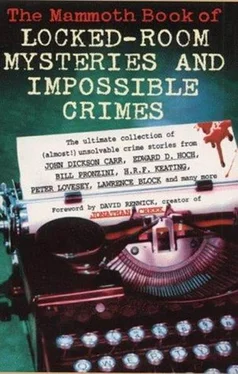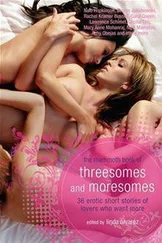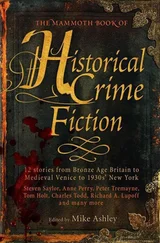Mike Ashley - The Mammoth Book of Locked-Room Mysteries And Impossible Crimes
Здесь есть возможность читать онлайн «Mike Ashley - The Mammoth Book of Locked-Room Mysteries And Impossible Crimes» весь текст электронной книги совершенно бесплатно (целиком полную версию без сокращений). В некоторых случаях можно слушать аудио, скачать через торрент в формате fb2 и присутствует краткое содержание. Жанр: Детектив, на английском языке. Описание произведения, (предисловие) а так же отзывы посетителей доступны на портале библиотеки ЛибКат.
- Название:The Mammoth Book of Locked-Room Mysteries And Impossible Crimes
- Автор:
- Жанр:
- Год:неизвестен
- ISBN:нет данных
- Рейтинг книги:3 / 5. Голосов: 1
-
Избранное:Добавить в избранное
- Отзывы:
-
Ваша оценка:
- 60
- 1
- 2
- 3
- 4
- 5
The Mammoth Book of Locked-Room Mysteries And Impossible Crimes: краткое содержание, описание и аннотация
Предлагаем к чтению аннотацию, описание, краткое содержание или предисловие (зависит от того, что написал сам автор книги «The Mammoth Book of Locked-Room Mysteries And Impossible Crimes»). Если вы не нашли необходимую информацию о книге — напишите в комментариях, мы постараемся отыскать её.
A new anthology of twenty-nine short stories features an array of baffling locked-room mysteries by Michael Collins, Bill Pronzini, Susanna Gregory, H. R. F. Keating, Peter Lovesey, Kate Ellis, and Lawrence Block, among others.
The Mammoth Book of Locked-Room Mysteries And Impossible Crimes — читать онлайн бесплатно полную книгу (весь текст) целиком
Ниже представлен текст книги, разбитый по страницам. Система сохранения места последней прочитанной страницы, позволяет с удобством читать онлайн бесплатно книгу «The Mammoth Book of Locked-Room Mysteries And Impossible Crimes», без необходимости каждый раз заново искать на чём Вы остановились. Поставьте закладку, и сможете в любой момент перейти на страницу, на которой закончили чтение.
Интервал:
Закладка:
I was gearing up to poke the bell a second time when the door opened. I’d been expecting Karl Bellermann, and instead I found myself facing a woman with soft blond hair framing an otherwise severe, high-cheekboned face. She looked as if she’d been repeatedly disappointed in life but was damned if she would let it get to her.
I gave my name and she nodded in recognition. “Yes, Mr Rhodenbarr,” she said. “Karl is expecting you. I can’t disturb him now as he’s in the library with his books. If you’ll come into the sitting room I’ll bring you some coffee, and Karl will be with you in -” she consulted her watch “- in just twelve minutes.”
In twelve minutes it would be noon, which was when Karl had told me to arrive. I’d taken a train from New York and a cab from the train station, and good connections had got me there twelve minutes early, and evidently I could damn well cool my heels for all twelve of those minutes.
I was faintly miffed, but I wasn’t much surprised. Karl Bellermann, arguably the country’s leading collector of crime fiction, had taken a cue from one of the genre’s greatest creations, Rex Stout’s incomparable Nero Wolfe. Wolfe, an orchid fancier, spent an inviolate two hours in the morning and two hours in the afternoon with his plants, and would brook no disturbance at such times. Bellermann, no more flexible in real life than Wolfe was in fiction, scheduled even longer sessions with his books, and would neither greet visitors nor take phone calls while communing with them.
The sitting room where the blond woman led me was nicely appointed, and the chair where she planted me was comfortable enough. The coffee she poured was superb, rich and dark and winey. I picked up the latest issue of Ellery Queen and was halfway through a new Peter Lovesey story and just finishing my second cup of coffee when the door opened and Karl Bellermann strode in.
“Bernie,” he said. “Bernie Rhodenbarr.”
“Karl.”
“So good of you to come. You had no trouble finding us?”
“I took a taxi from the train station. The driver knew the house.”
He laughed. “I’ll bet he did. And I’ll bet I know what he called it. ‘Bellermann’s Folly,’ yes?”
“Well,” I said.
“Please, don’t spare my feelings. That’s what all the local rustics call it. They hold in contempt that which they fail to understand. To their eyes, the architecture is overly ornate, and too much a mixture of styles, at once a Rhenish castle and an alpine chalet. And the library dwarfs the rest of the house, like the tail that wags the dog. Your driver is very likely a man who owns a single book, the Bible given to him for Confirmation and unopened ever since. That a man might choose to devote to his books the greater portion of his house – and, indeed, the greater portion of his life – could not fail to strike him as an instance of remarkable eccentricity.” His eyes twinkled. “Although he might phrase it differently.”
Indeed he had. “The guy’s a nut case,” the driver had reported confidently. “One look at his house and you’ll see for yourself. He’s only eating with one chopstick.”
A few minutes later I sat down to lunch with Karl Bellermann, and there were no chopsticks in evidence. He ate with a fork, and he was every bit as agile with it as the fictional orchid fancier. Our meal consisted of a crown loin of pork with roasted potatoes and braised cauliflower, and Bellermann put away a second helping of everything.
I don’t know where he put it. He was a long lean gentleman in his mid-fifties, with a full head of iron-grey hair and a moustache a little darker than the hair on his head. He’d dressed rather elaborately for a day at home with his books – a tie, a vest, a Donegal tweed jacket – and I didn’t flatter myself that it was on my account. I had a feeling he chose a similar get-up seven days a week, and I wouldn’t have been surprised to learn he put on a black tie every night for dinner.
He carried most of the lunchtime conversation, talking about books he’d read, arguing the relative merits of Hammett and Chandler, musing on the likelihood that female private eyes in fiction had come to out-number their real-life counterparts. I didn’t feel called upon to contribute much, and Mrs Bellermann never uttered a word except to offer dessert ( apfelküchen , lighter than air and sweeter than revenge) and coffee (the mixture as before but a fresh pot of it, and seemingly richer and darker and stronger and winier this time around). Karl and I both turned down a second piece of the cake and said yes to a second cup of coffee, and then Karl turned significantly to his wife and gave her a formal nod.
“Thank you, Eva,” he said. And she rose, all but curtseyed, and left the room.
“She leaves us to our brandy and cigars,” he said, “but it’s too early in the day for spirits, and no one smokes in Schloss Bellermann.”
“Schloss Bellermann?”
“A joke of mine. If the world calls it Bellermann’s Folly, why shouldn’t Bellermann call it his castle? Eh?”
“Why not?”
He looked at his watch. “But let me show you my library,” he said, “and then you can show me what you’ve brought me.”
Diagonal mullions divided the library door into a few dozen diamond-shaped sections, each set with a mirrored pane of glass. The effect was unusual, and I asked if they were one-way mirrors.
“Like the ones in police stations?” He raised an eyebrow. “Your past is showing, eh, Bernie? But no, it is even more of a trick than the police play on criminals. On the other side of the mirror -” he clicked a fingernail against a pane “- is solid steel an inch and a half thick. The library walls themselves are reinforced with steel sheeting. The exterior walls are concrete, reinforced with steel rods. And look at this lock.”
It was a Poulard, its mechanism intricate beyond description, its key one that not a locksmith in ten thousand could duplicate.
“Pickproof,” he said. “They guarantee it.”
“So I understand.”
He slipped the irreproducible key into the impregnable lock and opened the unbreachable door. Inside was a room two full stories tall, with a system of ladders leading to the upper levels. The library, as tall as the house itself, had an eighteen-foot ceiling panelled in light and dark wood in a sunburst pattern. Wall-to-wall carpet covered the floor, and oriental rugs in turn covered most of the broadloom. The walls, predictably enough, were given over to floor-to-ceiling bookshelves, with the shelves themselves devoted entirely to books. There were no paintings, no Chinese ginger jars, no bronze animals, no sets of armour, no cigar humidors, no framed photographs of family members, no hand-coloured engravings of Victoria Falls, no hunting trophies, no Lalique figurines, no Limoges boxes. Nothing but books, sometimes embraced by bronze bookends, but mostly extending without interruption from one end of a section of shelving to the other.
“Books,” he said reverently – and, I thought, unnecessarily. I own a bookstore, I can recognize books when I see them.
“Books,” I affirmed.
“I believe they are happy.”
“Happy?”
“You are surprised? Why should objects lack feelings, especially objects of such a sensitive nature as books? And, if a book can have feelings, these books ought to be happy. They are owned and tended by a man who cares deeply for them. And they are housed in a room perfectly designed for their safety and comfort.”
“It certainly looks that way.”
He nodded. “Two windows only, on the north wall, of course, so that no direct sunlight ever enters the room. Sunlight fades book spines, bleaches the ink of a dust jacket. It is a book’s enemy, and it cannot gain entry here.”
Читать дальшеИнтервал:
Закладка:
Похожие книги на «The Mammoth Book of Locked-Room Mysteries And Impossible Crimes»
Представляем Вашему вниманию похожие книги на «The Mammoth Book of Locked-Room Mysteries And Impossible Crimes» списком для выбора. Мы отобрали схожую по названию и смыслу литературу в надежде предоставить читателям больше вариантов отыскать новые, интересные, ещё непрочитанные произведения.
Обсуждение, отзывы о книге «The Mammoth Book of Locked-Room Mysteries And Impossible Crimes» и просто собственные мнения читателей. Оставьте ваши комментарии, напишите, что Вы думаете о произведении, его смысле или главных героях. Укажите что конкретно понравилось, а что нет, и почему Вы так считаете.










